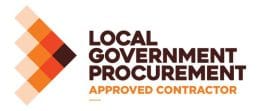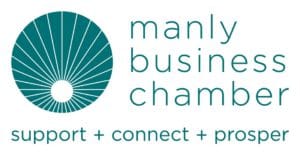Tag Archive for: #optimalrecruitment
How exciting, you have just been offered and accepted a new Job YAY! Congratulations!!! Then you remember you now must resign from your current job ugh yuk….
At Optimal Recruitment we believe how you conduct yourself at this stage is very important. We understand you may just want to leave today but you don’t want to burn any bridges. How you act now and during your notice period is very important and is a reflection on you and your work ethic.
- Before you start telling the world; ensure you have finalised all the details with your new employer. Have you signed your new letter of offer contract? Have you covered the start date, salary, up-coming holidays you already have pre-booked? Make sure everything is negotiated and in order before you tell your current manager you are leaving.
- Clean up your computer – Before you tell your boss you are leaving – delete personal files, personal email messages and get the contact details of anyone you wish to keep in touch with once you have left. While you may wish to see out your notice period your manager may want you to leave that day.
- Think about what projects you have on and have a rough idea on some recommendations you could give your manager on how you could transfer these responsibilities and tasks. Even though your leaving and you have more than likely mentally checked out – you don’t want to leave the team inundated with unfinished work or projects not even started that no-one knows about.
- Also have a rough plan on how you are going to tell your colleagues why you are leaving the company. Whatever your reasons for leaving your job keep your story consistent and positive. Don’t bad mouth your company, bosses or co-workers these things have a way of getting out.
- Write your resignation letter – we have included a sample below to help you on your way. We think you should be positive, thank them for the experience and offer to help do a handover, it may not be taken up, but the gesture will be appreciated. Also don’t forget your letter may be kept on file so don’t include any nasty comments that may come back to ‘bite you later’.
- Do not tell anyone else until you have handed in your formal resignation letter to your manager – ask them how they want to handle it as they may want to make the announcement on their terms. Also, what are your thoughts on a counteroffer? If your boss offers you a salary increase would you change your mind?
- Check with HR what you are entitled to when you leave? Do you have annual days owing? Any other employee benefits? Also, how much notice do you need to give? Check your current contract – 2 weeks’ notice is generally the standard practice but check your company policy. Try and give your employer as much notice as you can.
- Ask your manager for a reference. Also ask if they can be available via phone /email to provide a reference now and in the future. If your manager is happy to give you a review, ask if they could also leave you one on LinkedIn. A LinkedIn recommendation will be visible to anyone, it’s on your profile for ever and could come in handy in the future if you are job hunting again.
- Don’t forget to say goodbye to everyone before you leave. Sending an email farewell message to your co-workers letting them know you are leaving the company is fine, don’t forget to include your contact information so they can stay in touch with you.
Leave your job a positive note, rather than negative. You want a good reference and who knows where you may end up, and who you may work with again in the future.
Best of luck
The Optimal Recruitment Team
For additional inspiration, here is a resignation letter template/sample we have put together for you. It is not a one-size-fits-all letter, unfortunately, but should provide you with ideas on format and content.
Resignation Letter – Template
Your name
Your job title
Organisation name
Your Address
Your Email
Your Phone Number
Today’s date
Recipient’s name
Recipient’s job title
Organisation name
Address
Dear Richard,
Please accept this letter as formal notification that I am resigning from my position as TITLE with COMPANY NAME. My last day will be Friday 6th March 2020.
Thank you so much for the opportunity to work in this position for the past Eight years. I’ve greatly enjoyed and appreciated the opportunities I’ve had at COMPANY NAME and I have enjoyed being part of the team.
Please let me know how I can help during this transitional period. I am happy to help train team members and do a handover during this time.
I wish the company continued success, and I hope to stay in touch in the future. My personal email is YOUR@EMAIL.COM.AU and my personal mobile is YOUR MOBILE NUMBER
Should you require any additional information please don’t hesitate to get in touch.
Yours sincerely,
Your Signature
Your typed name
So many jobs, so many companies, sooo many choices! Being a newbie in the job market can be a daunting experience. Where do you start when you’ve never had to navigate job applications, interviews and assessments before? Right here! Our recruitment experts have put together five top tips to help you find and land your first job.
Start with You
Take a look at yourself. What are your core strengths? What are your preferred work environments? What would you like to be doing in five years’ time? Before you get your job search underway, decide what type of role you would like to aim for and why. If you’re unsure, chatting to a career’s advisor or recruitment consultant can be a good idea. They can give you an idea of the different jobs that are out there, and help you zoom in on a few suitable and rewarding options.
Create a winning resume and cover letter
Brush up your resume or create one from scratch. If you don’t have heaps of work experience, don’t worry! Hiring managers will be more interested in your potential at this stage, so highlight your key strengths, showcase your achievements and shine a spotlight on your interests. Work on your cover letters too, making sure that each one is carefully targeted to the role you are applying for. It can be a good idea to keep track of your applications (dates, roles, hiring manager names and contact details, etc.) in a dedicated spreadsheet, especially if you’re using multiple platforms. At a glance, you’ll know what you’ve done and when, and who to follow up with.
Consider building a LinkedIn profile. It’s a great platform for developing your professional presence and networking with other professionals.
Get a foot in the door!
There’s so much you can do both online and offline to further your job search. Check out job listings on recruitment agency websites or search engines such as SEEK and Indeed, where you can search for specific roles by area and set up job alerts. Click on a few roles and get a feel for what employers are asking for – and then apply if you think you are a suitable candidate. With a little online research, you’ll also find resume templates, information on what to expect at interview, and heaps more useful resources.
Don’t forget face-to-face opportunities! Careers fairs and recruitment events can be great ways to find out about different jobs and organisations and connect with the people working there. Ask questions, gather brochures and business cards – and follow up! If you’ve had an interesting discussion with a company representative, there’s no harm in sending a brief email to thank them for their time and ask if there are any upcoming internships or job shadow opportunities.
If you’re at uni, tap into your alumni network. Chances are you’ll find former students working in your first-choice organisation or similar companies. While alumni may not hand you a job on a plate, many will be happy to provide you with job-related information and advice. Also look at joining an industry-related group at uni, where you can connect with like-minded peers and potentially access professionals working in the field.
Really prepare for that interview
Before the big day, make sure you’ve researched the role and the organisation in detail. Try to anticipate some of the questions you’ll be asked and prepare responses to them. Go armed with a couple of questions of your own to show you’ve done your homework. Every recruiting manager likes to see preparation and enthusiasm! Oh, and dress appropriately. Look the part and if in doubt, dress up rather than down.
Be persistent
It can take time and effort (and a lot of applications) to land your first job. Keep at it but leave a little time for living too. Persistence pays off and you’ll soon find a role you love and the chance to embark on a rewarding career journey.
Good luck!
At Optimal Recruitment we are experienced in helping candidates navigate the job market. Give us a call today on 02 8416 4181.
Aaargh! You’ve been putting it off for weeks. Writing that pesky first resume. Don’t despair! Follow our top ten tips below and you’ll be one step closer to securing your dream job.
- Keep It Simple
So, you might want to experiment with font and colour. Great if you are a wannabee graphic designer. If not, stick to a readable font, like Arial, Times New Roman or Calibri, throughout. You can still play around with bold and italics to highlight important features.
If your resume runs to more than one page, consider including a header or footer with your name and contact details. Sometimes, recruiters print out resumes and this ensures none of your info goes astray.
- Contact Details
Casual voice mail messages, such as “Hey, dude. Surf’s up…etc.” (Yup, we’ve heard them all before) are a big no-no. Record something short and polite. You’re looking for work, not catching your next set. Equally, blasting your caller with on-hold music is not cool.
Check your email message is professional and appropriate. How about keeping shazzarocks@hotmail.com for your personal contacts, and using sharon.rock@hotmail.com in your job search instead?
- Education
List your high school name, location, and dates of attendance.
If applicable, also list your university/college name, location, course title, dates of attendance, and qualification level achieved.
Impressive final grades? Make sure you include them too.
- School/College/University Achievements
Think about what you achieved at school, college and/or uni. Did you hold a position of special responsibility, e.g. class captain? Did you receive any awards? Were you a member of any school teams, music groups, or associations?
This section shows that you did more than just turn up for class and sit the end-of-year exams.
- Personal Attributes
Tell the recruiter what qualities you offer them as an individual. Ask others, such as teachers, university professors, and close family friends, how they would describe you. Or check out your past school reports. Focus on positive descriptions, e.g. motivated, keen to learn, reliable, honest, good team player, and strong communicator. And don’t list too many!
- Skills
This section should focus on your proven abilities, e.g.
Intermediate Software: Word, Excel, Outlook, Internet
Basic Software: PowerPoint, Photoshop
Languages: English native speaker, fluent Italian (written and spoken)
Bear in mind that recruitment agencies and potential employers will often test your software skills, especially if they are essential for the role you are applying for.
- Work Experience
Demonstrating work experience, whether paid, casual or voluntary, can make or break your resume.
Include details, such as employer name, location, role, and dates of employment. And then show how you made a difference. What were your responsibilities in the role? What did you achieve?
If you worked on the crew at Macca’s, you could talk about working as part of a team, delivering top quality customer service, and the challenges of producing results in short timeframes.
If you helped out in the family business, focus on your contribution. Perhaps you designed a new spreadsheet to capture important information, or assisted customers in-store.
- Interests
Along with #5, this is your chance to tell recruiters and potential employers more about you as an individual. Interests should generally fall into three categories:
- Relevant to the job
If you’re applying for a role at a building consultancy, an interest in modern architecture could be a real plus. Just make sure you can talk about it in some detail.
- Showcase for your skills
Don’t just list one word, like “Sailing”, and leave it at that. Mention your participation in local regattas, and any good race results; include your role on the yacht club social committee.
- Plain quirky
Juggling, acrobatics, and collecting paperclips show your originality, and can be useful conversation openers at interview stage.
- Referees
Include the full name, job title, organisation, email and telephone number of two referees. Ideally, these should be people you have worked with, such as a shift manager or team leader. If you don’t have much prior work experience, you could always ask someone who knows you well, e.g. a family friend or high school teacher to be a referee.
Ask your referees before providing their details to recruiters and potential employers.
- Spellcheck
Run a spellcheck through your resume, then print out a copy and read it from start to finish. Ask a couple of trusted friends or family to look through the final draft. They might just find the one error you’ve overlooked.
Starting on 1 January 2020, public companies, large proprietary companies and trustees of registrable superannuation entities will be required to have a whistle-blower policy in place. This is part of a move to ensure greater protections for whistle-blowers under the Corporations Act 2001.
Money laundering, fraud, financial irregularities, criminal damage against property – these are just some of the types of misconduct that can take place in a corporate environment. Whistle-blowers play an important role in uncovering and reporting these activities, but individuals are often unwilling to speak out for personal and financial reasons.
A whistle-blower policy provides a clear framework for all employees in an organisation. It should aim to promote whistle-blowing best practice in the workplace and encourage disclosure, contributing to a more ethical corporate culture. Amongst others, the policy must:
- Identify people, within the company and externally, who can receive whistle-blower reports
- Advise whistle-blowers how to make a disclosure
- Include details on how your company will investigate whistle-blower reports
- Provide information on legal protections available to whistle-blowers
- Outline how your company will support and protect whistle-blowers
To find out more, take a look at this useful Regulatory Guide released by the Australian Securities and Investments Commission (ASIC). It provides information on designing a whistle-blower policy that complies with the legal obligations, as well as tips for implementing and maintaining this policy in the workplace.
You’ve been in your job for a couple of years and you’re thriving. You’re smashing all your targets, and ticking all the boxes in your performance appraisals, but your success is not reflected in your pay package. Rather than threatening to down tools unless you receive more $$$ on the spot, hang in there and plan ahead. Here is our step-to-step guide to asking for and getting the pay rise you deserve.
BUILD A h2 CASE
First, check out your job description. Are you meeting and exceeding all the requirements of your role? Have you taken on additional responsibilities that are not mentioned in your job description? Have you made suggestions that have been implemented in the workplace? If yes to any of these questions, then start to build your case. Make a list of your achievements and, if possible, quantify them. Highlight how many benchtops your team have made; specify the total client billings you have generated over the last six months.
Next, look outside your workplace at the wider employment market. Look at job ads for similar roles in the area; study online salary surveys and trends. Find out whether you could potentially earn more elsewhere and note important data. This research will not only help you to justify your request for an increase, it will also help your boss escalate that request to senior management.
BOOK A MEETING WITH YOUR BOSS
Rather than catching your boss on the hop, book a meeting with her and specify that you are wanting to discuss your performance and pay. Timing is crucial here. Fix a day when your boss is not submerged with work; you want her to be open to discussion. Equally, ensure that the current business climate in your workplace is conducive to talk of a pay rise. If the CFO has just quit, or a merger is looming on the horizon, you’d be best to hold off!
BE PREPARED TO SELL YOURSELF
If you don’t ask, you won’t get it! Asking for a pay rise can be a confronting and challenging experience, which is why some employees never get around to it. But you’ve done your homework and you know you’re worth it. So, go into that meeting with courage and confidence. Be upfront about what you bring to your role and the company and support your argument with the research you have carried out. Have a clear idea of the pay package you are after but go in higher so there is room for negotiation. Once you’ve stated your case, ensure you listen to what your boss has to say and respond appropriately. This should not be a battle, but a reasoned discussion between two professionals with a positive outcome for both sides: you receive your pay rise and your boss gets to keep a valued employee on her team.
CONSIDER YOUR OPTIONS
All being well, you’ll get the pay rise you are asking for, but what if the response is ‘no’? Don’t lose your cool! First, ask your boss what you can do to achieve that increase in six months’ time. Perhaps there is an aspect of your role where she feels further development is required or perhaps she is privy to company information about future expense cuts and frozen pay. In both instances, consider whether you are best off staying in the role and working your way towards a new pay review or looking around for a new position in another company.
Good luck! We hope you get the pay rise you deserve.
So, you have made it to interview stage, congratulations!
Now you face the minefield of negating the ‘right questions’ to ask when you are there.
The opportunity for you to ask questions in the interview is your chance to get a sense of what it might be like to work for this company. We strongly suggest you ask a couple of questions as it shows you are interested in the company and the position. Generally speaking a fair number of questions is somewhere between 3 -5. Use your discretion; be mindful of the time and the interviewers body language. Now is not the time to ask 50 questions.
To help you along we have jotted a couple of our favourites down.
- Can you tell me a little bit more about the work culture?
- What do you enjoy most about working here?
- What does success look like in this position, and how do you measure it?
- What would a typical day look like for this role being offered?
- What attributes does someone need to have in order to be successful in this position?
- What are the biggest challenges that someone in this position would face?
- Can you tell me about the team and manager I’ll be working with?
- Can you tell me about my direct reports? What are their strengths and the team’s biggest challenges?
- If I am successful, how will I be trained? And what training programs are available to employees?
- What are the most important things you’d like to see someone accomplish in the first 30, 60, and 90 days on the job?
- What are the performance expectations of this role over the first 12 months?
- Why is the position vacant?
- What are the company’s key priorities over the next five years?
- Where is the last person who held this job moving on to?
- Where do you see this company in the next few years?
- What sort of budget would I be working with?
- Do you expect to hire more people in this department in the next six months?
- What are the common career paths in this department?
- What are the next steps in the interview process?
These questions are just a guide and depending on the role you are going for may not be appropriate but hopefully they will give you something to work with. Don’t forget the interview is a two-way process, the role also needs to be a good fit for you, so use this is an opportunity to suss the company and position out.
Good Luck!
Do you have a favourite question you like to ask during an Interview, We would love to hear it?
We have all heard the expression, ‘First Impressions last’ well this is very true especially at interview stage. You have made it this far through the recruitment process so don’t throw away your chance on poor outfit choice!
It can be hard to know what to wear for your interview when in doubt, we say here at Optimal Recruitment, its always better to be overdressed than under-dressed. You should always stay away from denim and leave your hat and flip flops at home.
A three-piece suit is not always needed and what you wear does depend on where your interviewing and what image of yourself you want to portray. The best interview outfit is clean, well-fitting, appropriate for the company’s culture, and not attention-getting. We want the hiring manager to be discussing your skills and experience not your sparkly top or tattoos.
Here are a few ideas to help you for your big day:
Interviewing at a Corporate Workplace
Suit all the way! The whole works, pants/ skirt or shirt, jacket and tie, polished shoes, heels or closed in shoes. Stockings if it’s a formal workplace, hair tied back and brushed, jewellery should be minimal, tattoos and piercings if you can cover them up, make up natural and light, carry a small purse not an oversized bag, keep cologne and perfume to a minimum. Try and avoid patterned and funky designs go for a solid suit colour or small pinstripes if you can. Light coloured or white shirts are best and pick a conservative tie, avoid bow ties at your interview. Wear matching socks, polish your shoes and make sure your belt matches your shoes.
Interviewing at a Casual Business Workplace
Chinos and Buttoned shirt with a collar. Skirt or dress (knee length ideally), covered shoes, block colour dress / shirt. Hair should be combed and tied back from your face. Jewellery should be minimal and please don’t wear too much perfume cologne – we have all been stuck in a lift with someone over-powering our senses before. You don’t want the interviewer to be shuffling you out because they can’t breathe.
Interviewing for Outdoor Work
You can wear those jeans but make sure they are your best ones though with no holes, rips or fraying. Avoid t-shirts with slogans, never wear shorts to an interview unless you are applying for a lifeguard position. Closed in shoes in good condition are best and please avoid thongs and hats.
You want to look neat and tidy and employable!
Interviewing for a job at a cafe, dress shop, or a start-up
It can be tricky when deciding what to wear for some job positions. You probably want to go casual and wear those Jeans but you really should leave them at home. We suggest you wear trousers or chinos instead. There is no need for a tie but if you can, wear a collared shirt or buttoned shirt – ideally not a t-shirt. Ladies choose a skirt, pants and a blouse. Shoes – wear what suits your outfit but make sure they are in good condition – maybe give them a quick clean if they have lots of scuff marks.
In a nutshell:
- Keep scented items — cologne, perfume, and aftershave to a minimum.
- Ensure your nails are clean – especially if you are going for a position in hospitality.
- Hair should be combed and tied back from your face.
- Jewellery should be minimal
- If the company you are interviewing for has a set uniform, try and dress similar to their style.
- Keep the flashy, see through, ripped and torn clothes at home.
- A good rule of thumb is to dress like your boss
No matter what you are wearing to your interview you want to look polished and respectable. Just remember you are more likely to be taken seriously when you present yourself in a professional manner and take the time to attend to the little details.
And as my Nana says Dress for success
Good Luck!

Optimal Recruitment
Optimal Recruitment specialises in sourcing, screening, interviewing and shortlisting candidates for temporary and permanent roles on Sydney’s Northern Beaches, Sydney, NSW and Interstate. We deliver recruitment solutions on time and on budget.
Employers
Job Seekers
Optimal Recruitment
Contact Details
307 /20 Dale Street, Brookvale NSW 2100
02 8416 4181
info@optimalrecruitment.com.au
Our offices are a 400m walk from the BLine bus stop at Warringah Mall
 Optimal Recruitment
Optimal Recruitment














